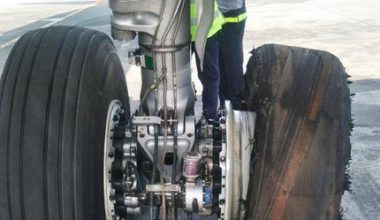Indian Government has decided to privatize Air India by changing rules to allow foreign airlines to bid for Air Indian Ltd as long as they have a local joint venture with an Indian partner but before selling its state-run airline Air India, the Indian government plans to divide the enterprise into two entities and sell them separately.
Foreign airlines must have a local joint venture with an Indian partner if they intend to bid for an Air India stake, a rule that’s applicable to all domestic airlines. Indian Government took this step so as to increase the number of suitors for debt ridden national carrier. The government has decided to sell Air India, Air India Express and AI-SATS, and while it’s three other subsidiaries will be sold separately.
“Foreign airlines will be allowed to bid as per the current policy that’s applicable on all domestic airlines. That much we can confirm,” said an official. Existing rules allow foreign airlines to own as much as 49% in an Indian airline, with the exception of Air India. The change in rules has drawn interest from companies including the Tata group and InterGlobe Aviation Ltd (IndiGo), more competitive.
Civil Aviation ministry of India has brought up a proposal to group of misters led by finance minister along with aviation minister, transport minister, railways minister and commerce minister of India to look into Air India’s stake sale in a recent meeting. The government will have to make several changes to existing rules before foreign airlines can bid for the national carrier but the change in control to a foreign airline will invalidate such rights.
IATA DG and CEO Alexandre de Juniac said the government’s decision to divest stake in the national carrier was a good move. “We support privatization of Air India. But the company has to be privatized in right conditions,” De Juniac added.
“For sale process, the government can keep a part stake initially but the government should eventually exit Air India. The government could allow foreign carriers also to bid for Air India. We do not see any problem in countries owning stake in any other carrier, as various global carriers have such stake, recognizing that the government have to decide on the limits of it,” suggested De Juniac .
To ensure Air India does not face any issues, the government will retain a clause that says Air India cannot be 100% foreign-owned (even though foreign entities can own 100% of a private Indian airline, stakes of foreign airlines is capped at 49%). This, the aviation ministry believes, will allow “effective control” to be retained in India as the majority ownership will be with an Indian entity. The ministry has also told the department of investment and public asset management to speed up the process of the Air India privatization.
Last week, the aviation ministry said it has decided to sell Air India as one airline, including domestic and international operations. The debt of Air India not linked to aircraft will also be hived off and will be likely placed in a special purpose vehicle, the official said. Air India had total debt of about Rs48,877 crore at the end of March 2017, of which about Rs17,360 crore were aircraft loans and Rs31,517 crore were working capital loans.
InterGlobe Aviation had said in July that it would be interested if Air India’s international operations are unbundled and put up for sale as it wants to strengthen its overseas network. Tata Sons Ltd executive chairman N. Chandrasekaran said in October that the group is considering buying Air India and has set up “a team which can definitely spend the time as soon as the details are out”. A former Air India chairman who did not wish to be named said it remains to be seen if government will allow deep-pocketed West Asia airlines to bid for Air India.






